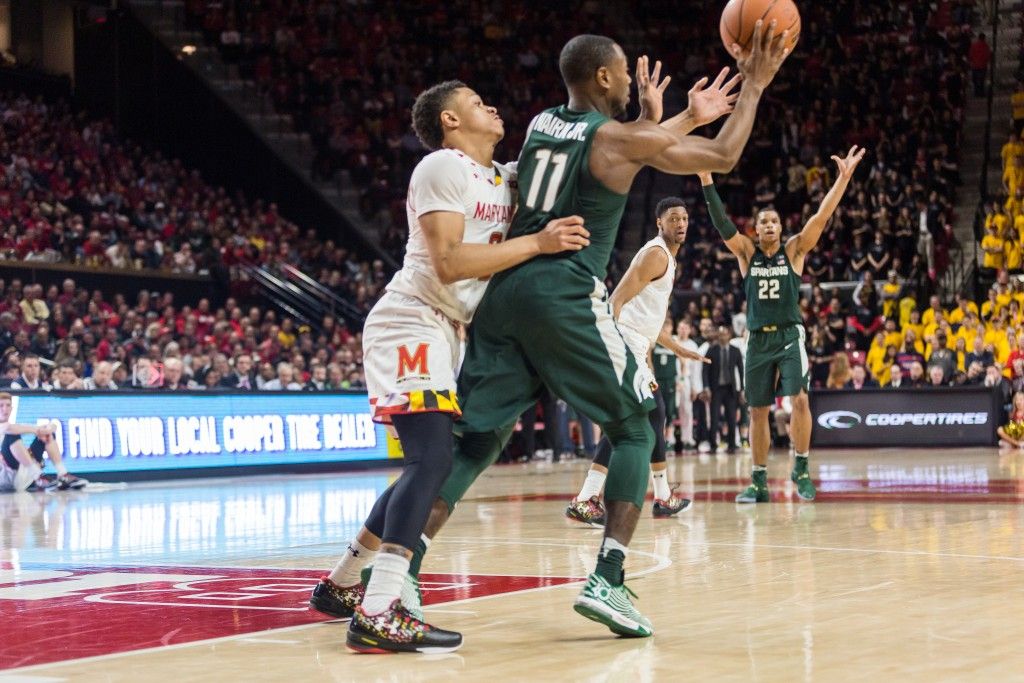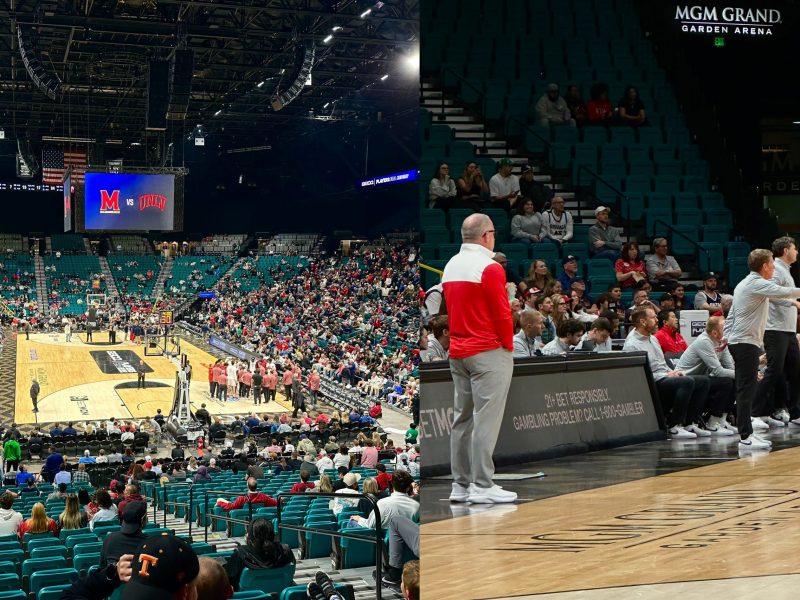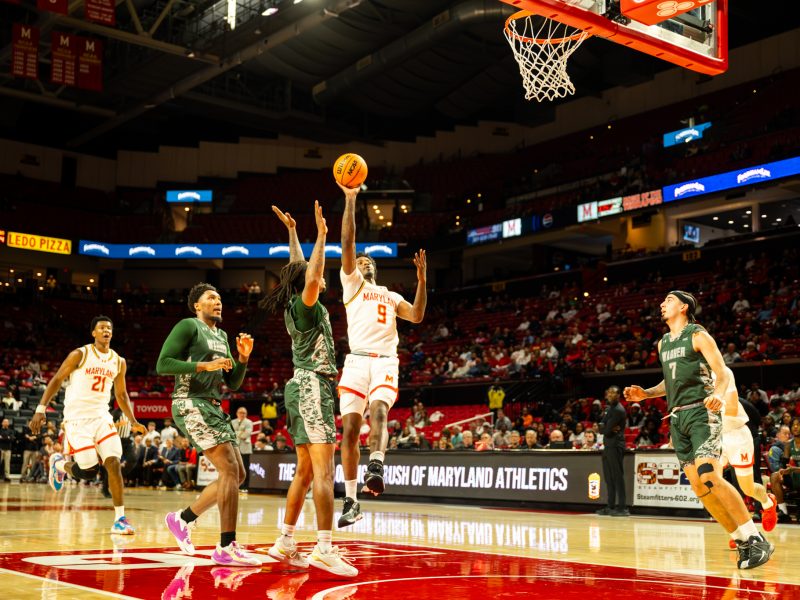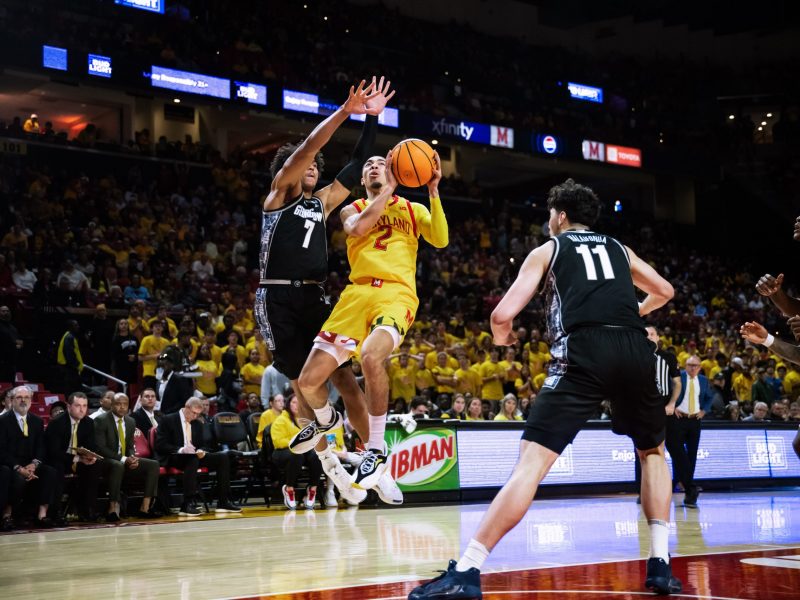Maryland will be taking its seven-game win streak to East Lansing, Michigan, to take on Michigan State, a team that comes in on an 11-game winning streak. If the Terps win, the two will share a stake for first place in the Big Ten along with Michigan, while a Spartans win would put Michigan State alone in first place.
To learn more about the two hottest teams in the conference, we talked to Chase Michaelson of The State News. His answers have been edited lightly for clarity.
The Spartans have been without guard Josh Langford for the past five games. How has the team looked in his absence?
The team is not as good without Langford. He is one of the two best perimeter defenders on the team, along with senior guard Matt McQuaid, and he is the best wing player in transition on this team. His replacement, junior Kyle Ahrens, is also out for the Maryland game with a back injury. The last two games have been started by freshman Aaron Henry. He’s talented, but young and prone to lapses on both ends. The team doesn’t click on transition without Langford (and Ahrens, to a lesser extent) the way it did before.
Cassius Winston is garnering hype as a potential Big Ten player of the year. How has he elevated his game to this level?
Cassius Winston is one of the smartest players you’ll ever see. He considered playing at Harvard, if that gives you an idea of the type of mind we’re talking about. With that kind of mind, and now being a third-year starting point guard in the Big Ten, there is no situation he isn’t ready for. Against Nebraska on Thursday, the team played poorly in a hostile environment; Winston scored 29. Tom Izzo’s offense is very point guard-driven, and when you’re the type of player Winston is, you really stand out.
Last year the Spartans lost two eventual lottery picks in Jaren Jackson Jr. and Miles Bridges. Which players have stepped up and filled their shoes?
Matt McQuaid and Xavier Tillman are the two biggest players who have stepped up. Both were bench players last season who played, in some ways, big parts. McQuaid starts, is a team captain, and Tillman is the first man off the bench. Though they aren’t Bridges or Jackson (or close), they provide the defensive solidity that is, in some ways, better than last year’s team. Tillman, in particular, has become an excellent interior defender.
The Spartans have held their opponents to under 70 points in 13 of their 18 games this year. What makes it so difficult to score against Michigan State?
Experience. There’s no offense that MSU hasn’t seen. Even with Langford and Ahrens out, you’re looking at a seven, sometimes eight, man rotation with five upperclassmen. MSU plays a gap-based man-to-man defense, with an emphasis on preventing dribble penetration. It’s an old-school approach by an old-school coach. In a Big Ten that lacks dominant individual talent, it’s a defense that requires the other team to work really hard to score.
Michigan State wins if…
The Spartans win if they play the way they have at home all year. This is a team that makes runs, and feeds off the crowd. There have been times, like against Iowa and Northwestern, where competitive games have gotten out of hand without you even really noticing. When the team is confident and passing the ball (I believe Michigan State still leads the country in assist percentage), it’s tough to stop.
Maryland wins if…
Maryland wins if it moves the ball. If Anthony Cowan tries to win the game by himself, he won’t. Michigan State is good, but beatable. In their loss to Louisville earlier this season, the Spartans shot the ball poorly, committed undisciplined fouls, and generally didn’t play well. If Maryland can make the game ugly, and Bruno Fernando and Jalen Smith can win their one-on-one matchups, the Terps will absolutely have a chance. Smith needs to stretch this team out, as the Spartans have struggled in the past defending bigs who can shoot.



